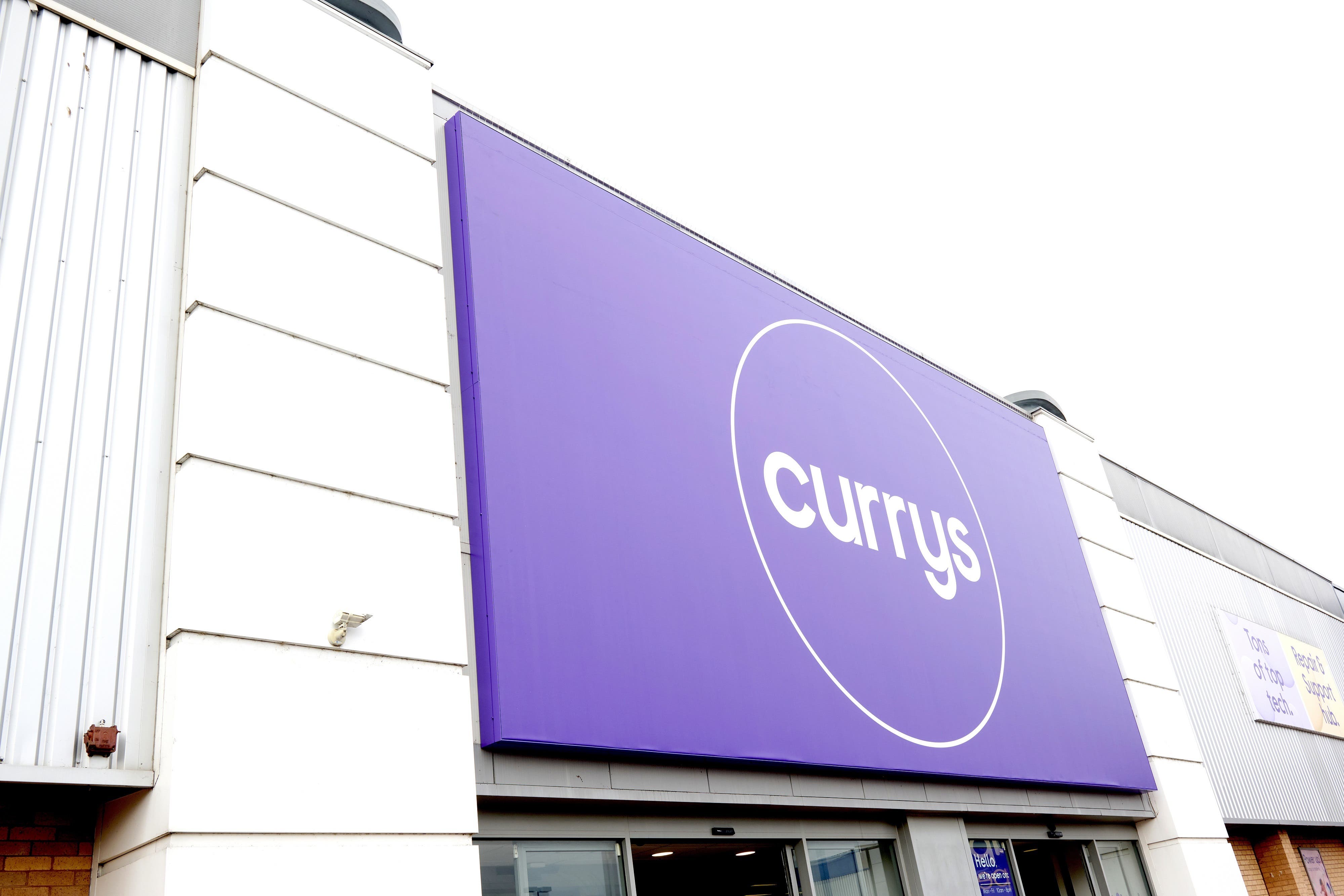Currys sales fall as consumer spending remains under pressure
The group saw sales decline by 4% on a like-for-like basis over the six months to October, compared with the same time last year.

Your support helps us to tell the story
From reproductive rights to climate change to Big Tech, The Independent is on the ground when the story is developing. Whether it's investigating the financials of Elon Musk's pro-Trump PAC or producing our latest documentary, 'The A Word', which shines a light on the American women fighting for reproductive rights, we know how important it is to parse out the facts from the messaging.
At such a critical moment in US history, we need reporters on the ground. Your donation allows us to keep sending journalists to speak to both sides of the story.
The Independent is trusted by Americans across the entire political spectrum. And unlike many other quality news outlets, we choose not to lock Americans out of our reporting and analysis with paywalls. We believe quality journalism should be available to everyone, paid for by those who can afford it.
Your support makes all the difference.Electricals retailer Currys has reported falling sales as it said consumer spending has been under pressure and the business sharpened its focus on improving profits.
The group saw sales decline by 4% on a like-for-like basis over the six months to October, compared with the same time last year.
Shoppers have remained squeezed by persistent inflation and rising interest rates, helping drive a decline in all its international markets.
On the one hand, the consumer is hard pressed and confidence is pretty bumpy. But on the other hand, real wages have continued to climb, employment has stayed high, people have retained savings, and customers are treating themselves
Group chief executive Alex Baldock said: “On the one hand, the consumer is hard pressed and confidence is pretty bumpy. Interest rates have been rising… and consumers are cautious about their spending.
“But on the other hand, real wages have continued to climb, employment has stayed high, people have retained savings, and customers are treating themselves.”
In the UK and Ireland, a decline in its share of the market was partly driven by its deliberate actions to prioritise profits over sales, the firm said.
But it cheered growing momentum on sales of its longer term customer services.
That includes the growing use of credit purchasing options which rose to more than a fifth of all sales, its “care and repair” plan which incorporates breakdown cover, and mobile SIM cards.
Mr Baldock said that customers were benefiting more from credit because their finances are squeezed, meaning they can spread the cost of a big-ticket purchase across several payments or choose a buy-now-pay-later option.
But he stressed that the company lends responsibly because it wants to “stay a mile away from any reputational damage that comes with lending money to people who can’t afford to pay it back”.
Furthermore, the boss revealed that some products were flying off the shelves, including games consoles and the video game Call of Duty, with people spending a bigger portion of their entertainment budget at home.
Coffee machines were also selling well, and the “air fryer phenomenon shows no signs of dying out”, Mr Baldock said.
Post-lockdown, more consumers have been buying premium haircare and beauty products rather than visiting salons, the retailer’s sales trends also suggested.
Meanwhile, Currys’ Scandinavian business has been struggling and it has pledged to get the division “back on track”.
It told investors that profitability across the Nordics improved over the half year despite a difficult consumer environment and sales declining.
Last month, the group struck a deal to sell its Greek and Cypriot business for 200 million euros (£172 million) as part of its plan to focus solely on the larger UK and Ireland and Nordics businesses.
Currys revealed it managed to shrink its pre-tax losses from £548 million last year to £46 million this year, in its latest update to investors.
It also stuck by its current expectations for full-year trading.
There are three million jobs at stake in UK retail and loading more costs onto an already overburdened sector is irresponsible, and we call for a change of heart on it
Mr Baldock said: “Our priorities this year are simple: to get the Nordics back on track, to keep up the UK and Ireland’s encouraging momentum, while strengthening our balance sheet and liquidity.
“We’re making good progress on all these in a still challenging economic environment.”
Elsewhere, Mr Baldock criticised the Government for increasing the national minimum wage to £11.44 from April, which he said will fall on “already overburdened” businesses.
“We believe we are paying our colleagues well and we certainly intend to continue to,” said Mr Baldock.
“That said, for the retail industry as a whole, having a big hike in the national living wage at the same time as an expected half a billion pound increase in the rates bill just shows how little the Government appears to understand or care about this industry.
“There are three million jobs at stake in UK retail and loading more costs onto an already overburdened sector is irresponsible, and we call for a change of heart on it.”